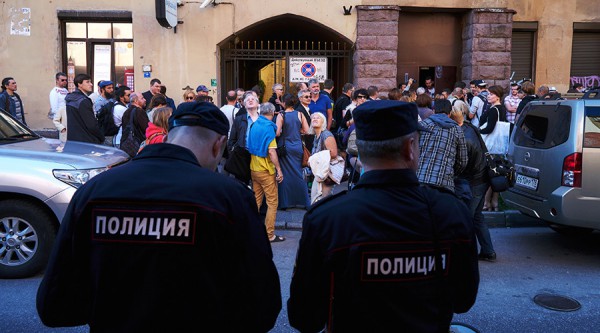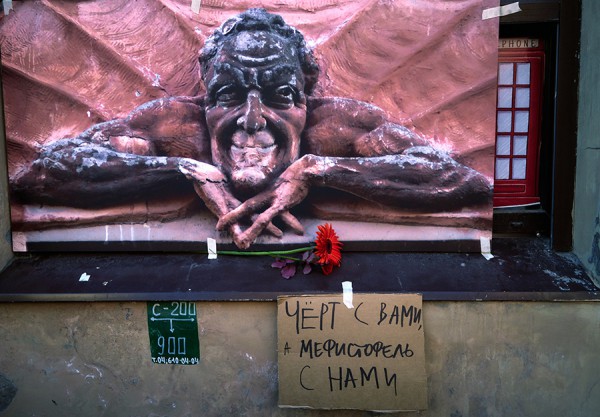Law & Politics
Religious Fanatics in Russia Destroy St Petersburg Demon Sculpture
Leaders call for coexistence of religion and culture.

Leaders call for coexistence of religion and culture.

Henri Neuendorf

The destruction of a bas-relief sculpture of Mephistopheles by a radical Christian group has caused outrage in St Petersburg, Russia. Fragments of the sculpture—which had adorned a historic apartment building since in 1910—were found in a waste container at a nearby construction site.
The New York Times reported that hundreds of residents, conservationists, and art lovers gathered in protest and demanded the restoration of the artwork. They also denounced the philistines who destroyed the piece.
The destruction has divided the Russian clergy and local community. According to a letter sent to Russian media outlets by a Cossack claiming responsibility for the attack, the sculpture is offensive to followers the Russian Orthodox Church because it depicts a demon.

The statue was destroyed on Sunday.
Photo: Alexey Danichev / RIA Novosti via EuroNews
However, a prominent Cossack community leader refuted this interpretation and vowed to avenge the destruction of the sculpture.
Meanwhile, Rev. Roman Bogdasarov, Moscow Patriarchate official, went on record to call the destruction legitimate because “images of a demon are repulsive.”
In contrast, another priest criticized the destruction, arguing that the depiction of demons is necessary to remind the people of the existence of evil.
Russian prosecutors are treating the destruction as a case of criminal damage and have already started investigating the incident.
Cultural officials and the liberal media has warned that the increasing radicalization of Russian fundamentalists is threatening Russian culture, and even compared the perpetrators of a spate of recent cultural attacks to the Islamic State.

Around 500 people gathered to protest against the intolerance.
Photo: Alexey Danichev / RIA Novosti via EuroNews
A radical Christian group calling itself “God’s Will” vandalized an exhibition by the Soviet artist Vadim Sidur at Moscow’s Manezh exhibition hall at the beginning of August. The group’s leader, Dmitry Tsorionov, called on his followers to destroy the artworks, some of which portray religious themes in what the Christian fundamentalist have deemed “blasphemous” contexts.
After the attack, Archpriest Vsevolod Chaplin, chairman of the Moscow Patriarchate’s department of church and social relations, visited the exhibition and said called many of the works “offensive.”
The vandalism was strongly denounced by Mikhail Piotrovsky, director of the State Hermitage Museum, who said that Russian society “is sick,” and urged for a more tolerant approach, calling for the coexistence of contemporary culture and religion.
Related stories:
Soviet Art Smashed in Ukraine After Controversial New Law Bans Nazi and Communist Symbols
Ukrainian Photo Exhibit in Chelsea Vandalized, Curator Attacked
Did Russia’s Internet Propaganda Agency Stage Neo-Nazi Attack on Chelsea Gallery?